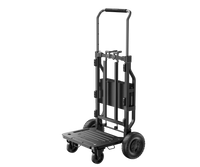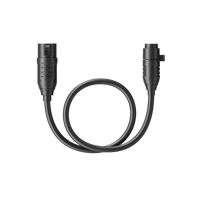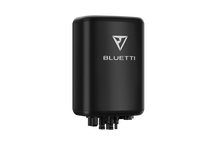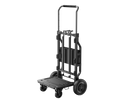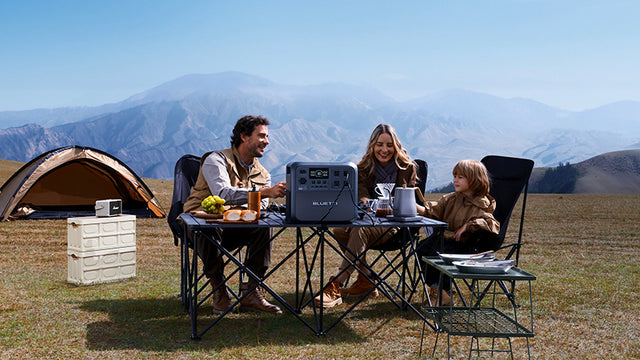Your cart is empty
Shop our products
Solar generators are great sources of backup power for all sorts of indoor appliances and outdoor trips.
They are portable and lightweight, allowing you to charge various electronic devices via the sun's energy.
More importantly, they are eco-friendly and, unlike conventional generators, do not require you to keep loads of fuel on hand.
This article shows you a new type of solar generator—the LiFePO4 solar generator. What’s it? And what is it used for?
Why Choose The LiFePO4 Solar Generator?

There are lots of reasons why you must choose the LiFePO4 solar generator. However, the most important of them is that the lithium iron phosphate (LiFePO4) battery.
Unlike lead-acid batteries, the LiFePO4 batteries offer significant advantages, including improved discharge efficiency, a long life span, and the ability to deep cycle while maintaining optimum performance.
LiFePO4 batteries have been around for a while.
However, it wasn’t until recently these batteries became a natural choice for many applications, including the solar industry.
Over time, they provide more energy and longer use cycles, making them the perfect investment for you and a good choice if you are thinking of the long term.
Other reasons why you should consider this solar generator include the following:
1. Performance
Compared with regular lead-acid batteries, LiFePO4 solar generators have a much longer life span. A LiFePO4 battery can operate perfectly for 7-15 years with up to 2500 life sycle.
2. Safety
LiFePO4 batteries are safe to use due to their extremely stable chemistry.
These batteries will not explode even under dangerous conditions like fire, short circuits, or collisions.
Plus, you can use up all of their full capacity without fear of explosion.
3. Climate Resistance
Both lead-acid and LiFePO4 batteries would lose their capacities in extreme weather conditions.
But then, the energy loss from LiFePO4 batteries is minimal compared with lead-acid batteries.
At -20 degrees Celsius, your LiFePO4 battery will likely retain up to 80% of its capacity compared to 30% when using an AGM battery.
4. Lightweight

On average, lead batteries are almost four times heavier than LiFePO4 solar generators of the same capacity. For instance, a 150Ah lead-acid battery can weigh up to 50kg, while a LiFePO4 of the same capacity weighs only 15 kg.
5. Fast Charging
While LiFePO4 batteries charge fast and at the same rate till 100%, a lead-acid battery takes time to absorb its last 20% charge.
What Exactly Is A Solar Generator?
A solar generator usually uses solar panels to generate automatic backup power.
Solar generators work by collecting solar energy from the sun through solar panels and storing it in solar batteries built into the generator.
The energy is then converted into alternating current (AC power) by an inverter before the generator releases the stored energy in home appliances and other electronic devices.
When these three parts are combined, the battery, the solar panel, and the inverter, they would form into a fully functional solar generator.
LiFePO4 solar generators can be used for various scenarios like camping, during power outages, and many more.
As a result, they come in different shapes and sizes designed for different applications and needs.

Solar Generator vs. Gas Generator
A solar generator is almost the same thing as a gas generator because they serve the same purpose.
That is, you can use both of them to generate electricity.
However, they have a lot of differences, and the most obvious of them is that solar generators do not need gas to work.
Instead of gas, solar generators generate electricity by using solar energy, which come from their solar panels and is stored in their battery, like your regular generator's fuel tank.

An important difference is that LiFePO4 solar generators offer clean energy rather than regular energy.Plus, they do not produce loud noises like regular gas generators, which means you can use them any time without causing pollution problems.
Although solar generators vary in size and output, they are mostly portable machines that you can carry for camping or anywhere else in which you need a power generator. Most of them come with handles and are much lighter compared with traditional generators.
But then, regular generators still have a few advantages compared with solar generators. Both offer unique pros and cons that make them ideal for some certain conditions. For instance, solar generator can be more expensive at purchase so you need to spend more to buy it than a regular generator.
However, the price is justified in the long run as a LiFePO4 solar generator is less expensive to use. You won’t have to pay for gas, oil change, or other maintenance costs like regular generators. On the other hand, without sunlight, a solar generator is useless, but it's unlikely you won’t find fuel.
Also, you need to charge a solar generator before you can use them. However, once you pour in fuel, you can start using your traditional generator. Also, solar generators and their solar panels are sold separately, whereas; traditional generators are sold as a whole unit.
Recommended products

BLUETTI AC200p 2000wh/2000w Portable Power Station
BLUETTI is an industry leader in the manufacture of power stations. The AC200P exemplifies our innovation and superiority in the portable power industry.
The BLUETTI AC200P comes with a 2,000Wh battery, a 2,000W continuous AC inverter, and 17 output ports. With that, this power station can power multiple devices and appliances simultaneously for extended periods.

This particular power station is unique in many ways. First, it’s one of a few power stations worldwide that with built-in LiFEPO4 battery and the first portable station that works with a touchscreen. It also comes with a wireless charging pad for your phone.

Thanks to the LiFePO battery, the AC200P will last 1.5 to 7 times longer than other generators that use lead-acid batteries. For you, this means more energy at a better cost.

BLUETTI EB70S 716wh/800w Portable Power Station
The BLUETTI EB70 portable power station weighs 24.1 pounds and features a capacity of 716Wh. Even with a large capacity, it is one of the lightest solar generators on the market. With 200W input, it can charge from solar panels in 3-4 hours, and its AC ports can provide up to 700W of continuous power to your appliances and devices.

The EB70 has 2,500 battery cycles to 80 percent capacity, which means it will last five times longer than comparable lithium-ion systems.
How to Maintain a Solar Generator
LiFePO4 solar generators cost a lot of money, therefore, you must protect your investment by using them well.
Protection involves ensuring that you do not overload the solar generators when you use them and they are not affected by corrosion as it is the most serious problem.
Corrosion causes resistance, which leads to heat. The battery connection may melt as the corrosion worsens and the resistance rises.
If you keep it somewhere outside your home, you should visit it once a month.
When you do, ensure to dust it, remove cobwebs and moisture, apply the anti-corrosive paste, and check its connections.
Also, you should have a professional service come around once a year to check the device.
FAQ
1. Is LiFePO4 good for solar?
Yes, LiFePO4 is a more efficient battery used for solar generators. It performs better than most batteries and is not as heavy. Plus, it takes less time to charge.
2. Is LiFePO4 the same as lithium-ion?
No, the term Lithium-ion refers to batteries that come with LiCoO2. Usually, LiFePO4 batteries have 4 to 5 times more battery life cycles than Lithium-ion batteries; also, LiFePO4 batteries are much safer to use
3. Why choose us?
If you are looking for high-tech solar generators that can deliver the right power, you should consider using our products. All of our products are durable and built to withstand the test of time. We have the best solar system products, including generators and solar panels that stand out due to their high quality.
Conclusion
A LiFePO4 solar generator refers to a device that works with solar panels to collect solar energy and store it in batteries.
The device later converts the energy stored away using inverters. Solar generators are the best way to generate electricity because they offer safe, clean, and almost free electricity.
There has been a lot of improvement in the solar industry in recent times, one of which is LiFePO4 batteries.
Compared with lead-acid batteries, these batteries offer better and safer electricity.
Since these batteries are typically lightweight, solar generators are portable and easy to carry about.
If you need a reliable solar generator that will serve you for a long time, consider getting one from BLUETTI.
Some of which are the best solor generators, as we’ve reviewed above in this article.
Shop products from this article
Be the First to Know
You May Also Like

What Does a 30% Federal Solar Tax Credit Mean and How to Apply?
Governments around the world are offering programs that encourage homeowners to switch to solar energy. Among the most notable programs is the 30% Federal Solar Tax Credit. It reduces your...

Deadly Flooding Devastates U.S. South and Midwest — What You Need to Know





































































